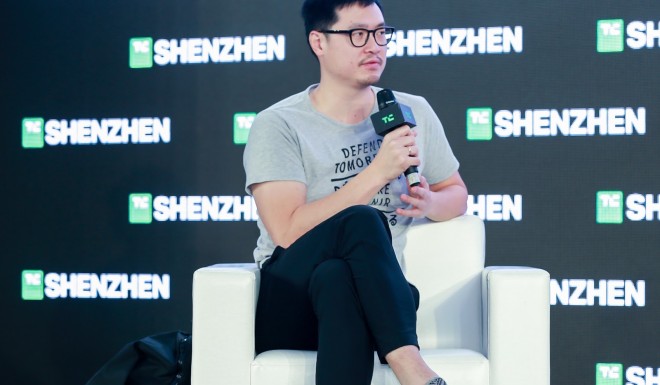
As crypto prices slide, HTC touts its blockchain phone as a privacy tool
HTC Exodus is still some way off
When Taiwanese smartphone maker HTC announced its first blockchain smartphone, Exodus 1, many people thought of it as capitalizing on a hot tech buzzword. But with crypto prices sliding rapidly, the company is now latching on to a new tech trend: Privacy.
The main draw of Exodus, set for launch in December, is that it can be used as a cryptocurrency wallet and as a system that keeps digital keys to access these virtual assets in a safer place. They’re stored offline in the phone instead of being uploaded on the cloud or scribbled down on a piece of paper. (In keeping with the Biblical tone, Exodus’ key management platform is called Zion.)
But a lot has happened since then. The crypto speculation craze has been subsiding even quicker than it rose during its peak in 2017. Bitcoin, the most popular virtual currency, has dropped from its peak of almost US$20,000 to today’s US4,400 per coin.
However, there is one intriguing possible use of a blockchain phone -- and it’s not related to cryptocurrency speculators. According to Chen, it could give users more control over the data they share. It’s a hot topic, especially as people become more suspicious of how online giants are handling our data.
“The phone is the most accessible device,” Chen said during a panel at TechCrunch Shenzhen on Monday. “If you wanna start somewhere to empower users to own their digital identities and data, that’s the phone.”

Although Exodus will have a mechanism for users to own their private keys, there aren’t really any privacy-keeping applications out there yet.
“We will work with browsers and different messaging systems that can use our hardware to sign users and manage transactions – but then it’s a third party development ecosystem that we need to build,” Chen told Abacus, adding that partnerships will be announced early next year.
HTC, for its part, admitted itself that Exodus is not ready for the masses -- even though it can do everything that a regular smartphone does. It has a 6-inch display, a Qualcomm Snapdragon 845 processor, 6GB RAM, a dual camera setup, and more.
The phone is only available for purchase with cryptocurrencies, including bitcoin and ethereum. Crypto is a big part of the conversation because that community is the primary target – they will be the ones assessing how safe Exodus really is.
One of the difficult parts will be recovering your digital ID in case you lose your blockchain phone. The key that gives access is split into five parts, which users can give to people close to them, like family or friends. HTC is calling this social key ownership.
“I’m not betting this will be an immediate success,” said Chen, noting they will need to do a lot of user education. But he does see is at a beginning of a new paradigm, same as HTC Dream was the first ever smartphone to ship with the Android operating system in 2008.
For more insights into China tech, sign up for our tech newsletters, subscribe to our Inside China Tech podcast, and download the comprehensive 2019 China Internet Report. Also roam China Tech City, an award-winning interactive digital map at our sister site Abacus.

